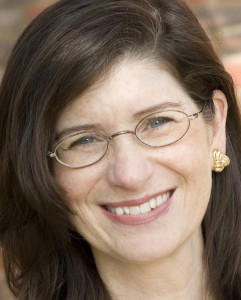Carol Kauffman: Coaching For Success
 By Natalie Michael, CHRP
By Natalie Michael, CHRP
Carol Kauffman, PHD, PCC is the director of the Institute of Coaching at Harvard University, the goal of which is to educate people about coaching and to support the scientific foundation of coaching. As co-director for the annual Harvard Coaching Conference, Carol’s passion is a driving force for all her coaching initiatives.
What inspires your passion for the work you do with the Institute of Coaching?
Personally, I am excited about it because for a big part of my career I was a psychologist who really believed in the potential of people. My interest in human potential and the genuine development of people was not regarded as scientific. By looking at coaching and positive psychology and building a research base to support the field, I can now articulate WHY coaching is effective. I see coaching as a way that positive psychology can be applied in the workplace to increase and enhance employee engagement, creativity, communication, and performance.
Based on your work so far, how do you believe the coaching profession is evolving?
The coaching profession initially emerged out of a group of people who were experimenting and came up with some good processes, but they did so in a very organic way. Now it is a billion dollar industry, so there is a greater need for the scientific foundation in order to maintain respect and credibility as a profession.
How is the Institute developing the scientific foundation of coaching?
We are doing this in a number of ways. First, we want to help people know and access the main theories that support the practice of coaching. Many coaches don’t know the theories and research that support what they are doing intuitively. Although an intuitive process is effective, it is exponentially more effective when you combine an intuitive and scientific practice. This allows you to reflect on what is being done and refine it.
We put on an annual coaching research conference. This year it is in Berlin and it is called the “Future of Coaching in 3D”. The conference will bring together practicing coaches, people who hire coaches, and coaching researchers. We are working to understand adult development, how people change, and how individuals, teams, and organizations can function at their best and flourish.
We are also offering $100,000 per year in coaching research grants. In fact, one of our goals is to connect with HR associations who also offer research grants, so we can pool our resources and gain a deeper understanding of how coaching impacts morale, productivity, and performance.
Why is it important for HR professionals to be aware of the coaching profession?
HR Leaders need to be able to explain to the other leaders in the business how coaching can accelerate leadership development and why it is a tool for change. Coaching is also a skill that many HR leaders are expected to have. At the Institute, we talk about the 20% rule. If a manager or an HR leader had 20% of the skills of a professional coach, they could do their job five times better. For example, coaching tools which positively impact productivity are powerful questions, and having an optimal ratio between support and challenge.
How are you seeing coaching being applied in organizations?
One piece of work I am doing now is working with a 40 billion dollar company to build Authentic Leadership. We started with two Leadership workshops based on research related to strengths and positive psychology. The workshops helped each leader to understand their leadership principles, and it connected the principles to their own personal experience as leaders and the organization’s mission. In the end, we translated this work into clear objectives which were consistently followed up on and later integrated with 360 feedback. This is now a two year program that is being rolled out across all levels of leadership. The CEO personally reads each of the leader’s plans.
Out of curiosity, why is Harvard interested in the coaching profession?
Initially, they were not. It took us two years to convince them to invest in the Institute. They had many of the same biases against coaching that corporate leaders have, namely that it is a profession that lacks substance. We got their buy-in, when our first coaching conference sold out in record time. When they saw the high quality information presented at the conference, they were willing to support us. I was also very fortunate to get a two million dollar gift from the Harnisch Foundation to establish the institute.
If people want to learn more about the Institute, where can they get further information?
They can gain further information at www.instituteofcoaching.org. If people want to become members, they will get ongoing access to the latest coaching research and education.
(PeopleTalk: Winter 2010)









